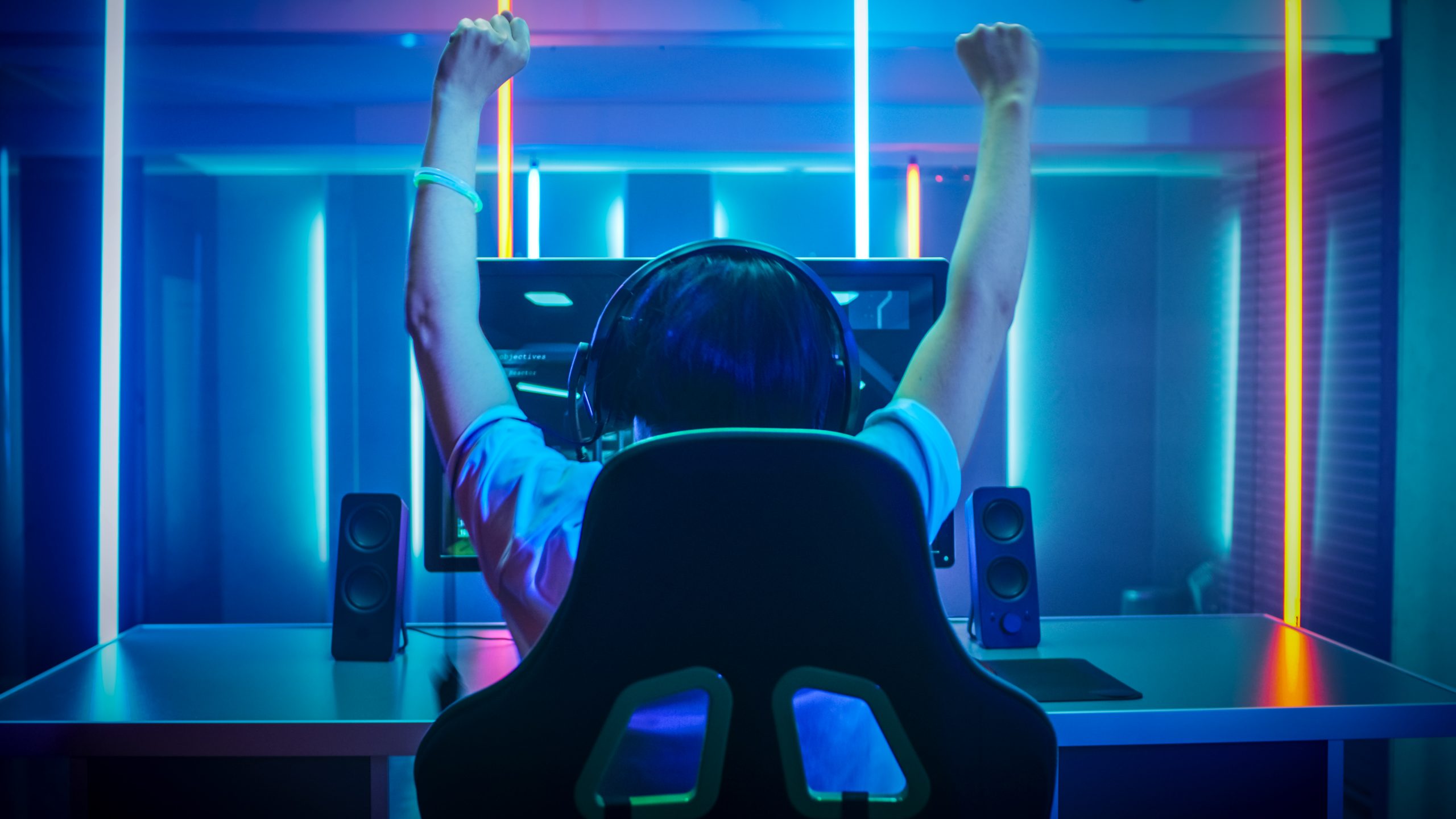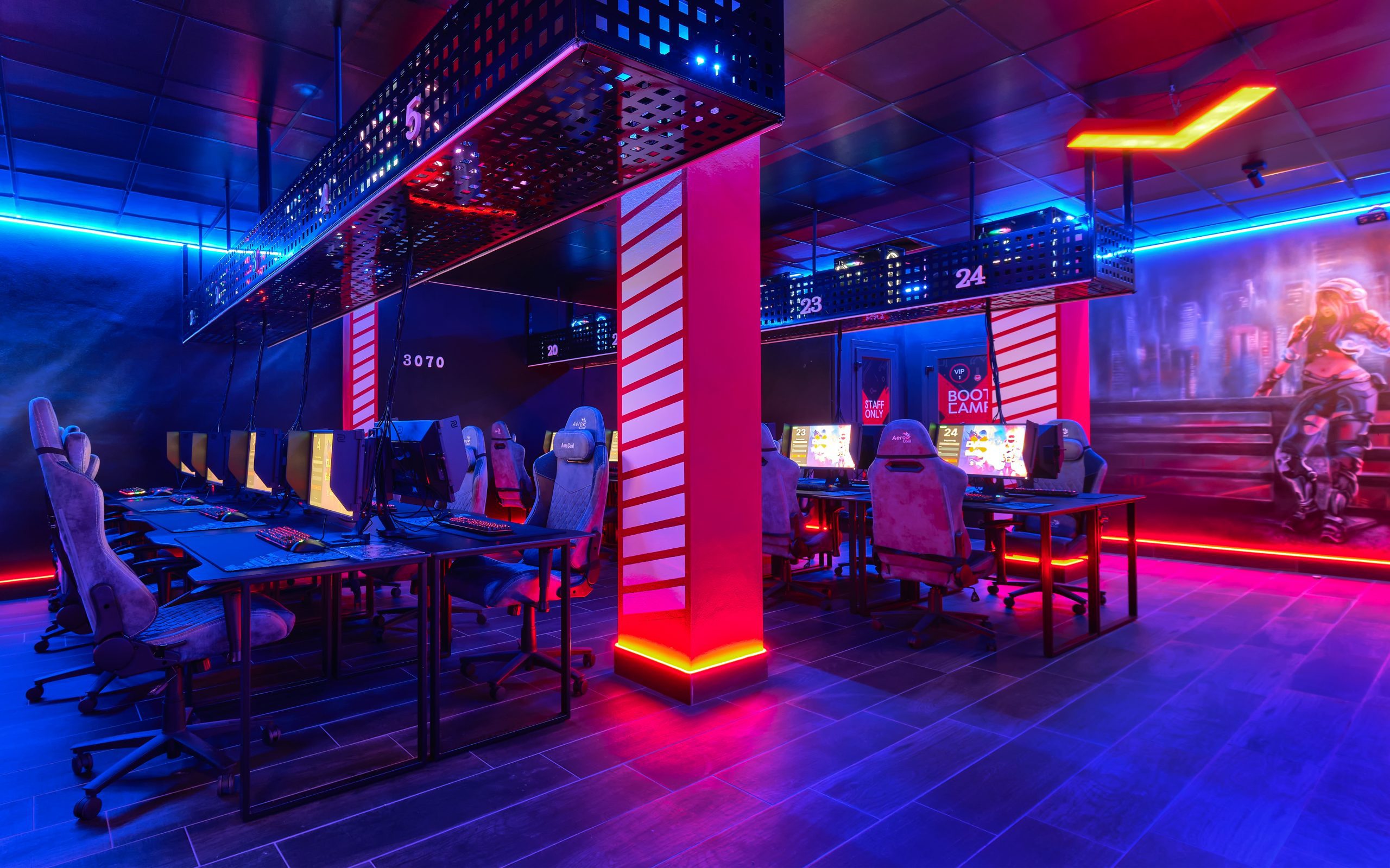Unlocking Global Gaming Experiences: Localizing MMORPGs with Professional Translation Services
In the dynamic world of Massively Multiplayer Online Role-Playing Games (MMORPGs), where players from around the globe immerse themselves in vast virtual worlds, effective translation and localization services for the gaming industry play a crucial role. MMORPGs are known for their rich narratives, complex gameplay mechanics, and vibrant player communities. However, to truly engage players worldwide, these games must be accessible in multiple languages.
Let’s explore the case for localizing and undertaking the translation process of MMORPGs and their broader implications for translation for the gaming industry.
Localization enhances Player Experience
MMORPGs thrive on player engagement, and a significant aspect of this is ensuring that players can fully understand and immerse themselves in the game world. Translation services bridge the language barrier, allowing players from different linguistic backgrounds to enjoy the game in their native language. From quest descriptions to in-game dialogue, accurate translation ensures that players can follow the storyline, understand gameplay mechanics, and communicate with other players effectively.

Translation Fosters Global Communities
One of the most remarkable aspects of MMORPGs is their ability to bring together players from diverse cultures and regions. Translation services provided by a translation company such as VEQTA enable players to communicate and collaborate regardless of language differences, fostering a sense of camaraderie and community within the game. Whether forming alliances, participating in raids, or trading items, players can engage with one another seamlessly, transcending linguistic boundaries. Translation services extend beyond in-game text to encompass community engagement efforts and events. Developers may host localized events, competitions, or forums to foster interaction among players from different linguistic backgrounds. These initiatives not only promote inclusivity but also strengthen player loyalty and engagement with the game and its community.
Player feedback also plays a vital role in refining translation efforts in MMORPGs. Developers often rely on player communities to identify translation errors, linguistic inconsistencies, or cultural inaccuracies. By actively listening to player feedback and incorporating iterative improvements, developers can continuously enhance the quality of translation services and tailor the gaming experience to meet player expectations.
Localization for Cultural Relevance
Effective translation goes beyond mere linguistic accuracy; it involves cultural localization to ensure that the game resonates with players across different regions. This includes adapting content such as dialogue, humor, and references to align with cultural norms and sensitivities. By tailoring the game experience to specific regions, developers can enhance its appeal and relevance, leading to greater player retention and satisfaction.
Game Localization Methodologies
While translation services offer numerous benefits, they also present challenges for MMORPG developers. Maintaining consistency in translation across frequent game updates and expansions can be demanding. Translation methodologies such as creating a termbase for translation continuity can be a great tool in translation continuity. A termbase, or bilingual glossary, is a repository of key words and phrases such as names, places, digital rewards, recuring phrases that may or may not be translated. Translation Style guides and Do Not Translate Lists can be created and maintained. Moreover, cultural nuances and idiomatic expressions pose unique translation challenges that require careful attention to detail. Additionally, the sheer volume of text in MMORPGs necessitates efficient translation management systems and workflows.

Market Expansion and Revenue Growth
Investing in high-quality translation services not only enhances player experience but also opens doors to new markets and revenue streams for MMORPG developers. By localizing their games for global audiences, developers can tap into diverse markets and attract a broader player base. This not only increases game sales but also boosts revenue through in-game purchases, subscriptions, and other monetization models.
Translation services are integral to the success and sustainability of MMORPGs in the global gaming landscape. By breaking down language barriers, fostering inclusive communities, and enhancing cultural relevance, translation services enrich the gaming experience for players worldwide. As the gaming industry continues to evolve, investing in high-quality translation and localization will remain essential for developers seeking to create immersive and engaging MMORPG experiences.
Technical Considerations
In addition to linguistic and cultural aspects, MMORPG developers must consider technical factors when implementing translation services. This includes text display limitations, font compatibility, and character encoding issues across different languages and platforms. Ensuring that translated text displays correctly across different platforms and devices is crucial for delivering a seamless gaming experience to players worldwide.
Text Display Limitations: MMORPG interfaces often have limited space for displaying text, particularly in menus, tooltips, and dialogue boxes. Translators must ensure that translated text fits within these constraints without compromising readability or functionality. This may involve adjusting font sizes, optimizing text layout, or abbreviating content while preserving meaning.
Font Compatibility: Different languages require specific fonts to display accurately, as characters may vary in size, style, or script. Both Japanese and Chinese for instance can be written both horizontally and vertically which needs to be utilized as effectively as possible. Developers must select fonts that support a wide range of languages and characters to ensure consistent and legible text display for players worldwide. Additionally, font rendering issues may arise on certain platforms or devices, requiring developers to implement alternative font solutions or adjust rendering settings. Text may also appear within images that requires image localization through Desktop Publishing.
Addressing technical considerations is essential for successful translation implementation in MMORPGs. By overcoming challenges related to text display, font compatibility, character encoding, and platform integration, developers can deliver a seamless and immersive gaming experience to players worldwide.
Character Encoding: Character encoding determines how textual data is stored and interpreted by software systems. MMORPGs must support various character encodings to accommodate different languages and character sets. Developers must ensure that text files, databases, and in-game assets use compatible encoding formats to prevent character corruption, garbled text, or display errors in translated content. Popular game localization services may include translation to Chinese, translation to Korean, translation to Thai, translation to Vietnamese, translation to Indonesian and translation to Japanese. Some of these languages has tone marks, diacritics, and expanded character sets which can be prone to corrupt if the wrong font is applied that doesn’t allow for the right character encoding.
Localization Tools and Platforms
To streamline the translation process, developers often utilize specialized localization tools and platforms such as translation CAT Tools and translation memories. These tools facilitate collaboration among translators, automate text extraction and insertion, and provide integrated quality assurance features. Additionally, cloud-based localization platforms offer scalability, version control, and real-time updates, enabling developers to manage translation projects efficiently and track progress across multiple languages and regions. Investing in localization solutions offered by game translation companies such as VEQTA ensures deployment of robust localization tools, testing methodologies, and cross-platform compatibility. Professional localization solutions are crucial to ensuring that translated content meets quality standards and enhances player engagement in MMORPGs.
Integration with Game Engines
MMORPG developers must integrate translated content seamlessly into their game engines to ensure a cohesive player experience. This involves updating in-game assets, UI elements, and dialogue scripts with translated text strings. Furthermore, developers must test translated content in various gameplay scenarios to identify and address any technical issues or inconsistencies that may arise during implementation.
Multiplatform Compatibility
MMORPGs are often available on multiple platforms, including PC, console, and mobile devices. Developers must ensure that translated content is compatible with each platform’s specifications, screen resolutions, and input methods. This may involve optimizing UI layouts, adjusting control schemes, or implementing platform-specific localization features to enhance user experience across different devices.
Voiceover Localization: Bringing Characters to Life Across Languages
A fully localized game is not complete unless the voices in the game are dubbed into the local language of the targeted locale. In the realm of MMORPGs, voiceover localization and dubbing services for game translation is as critical as textual translation in crafting immersive, engaging narratives that captivate players worldwide. Voiceovers breathe life into characters, convey emotions, and enhance the storytelling aspect of games, making the localization of voice content a pivotal component of the global gaming experience. Effective voiceover translation services contribute to the accessibility and inclusivity of MMORPGs, ensuring that players with diverse linguistic abilities and disabilities can participate fully. Developers may implement features such as customizable UI language settings, text-to-speech options, and subtitles for in-game audio content to accommodate a wide range of player needs and
Evolving Technologies and Trends
As technology evolves, so do translation practices in the gaming industry. Machine translation and artificial intelligence offer new possibilities for automating the translation process and reducing time-to-market for localized content. However, human oversight and cultural expertise remain essential to ensure accurate and culturally sensitive translations that resonate with players.
Comprehensive translation services are vital for MMORPGs to thrive in the global gaming market. By addressing linguistic, cultural, technical, and accessibility considerations, developers can create immersive and inclusive gaming experiences that resonate with players worldwide. As the gaming industry continues to evolve, the importance of high-quality translation services will remain paramount in delivering memorable and engaging MMORPG experiences.


